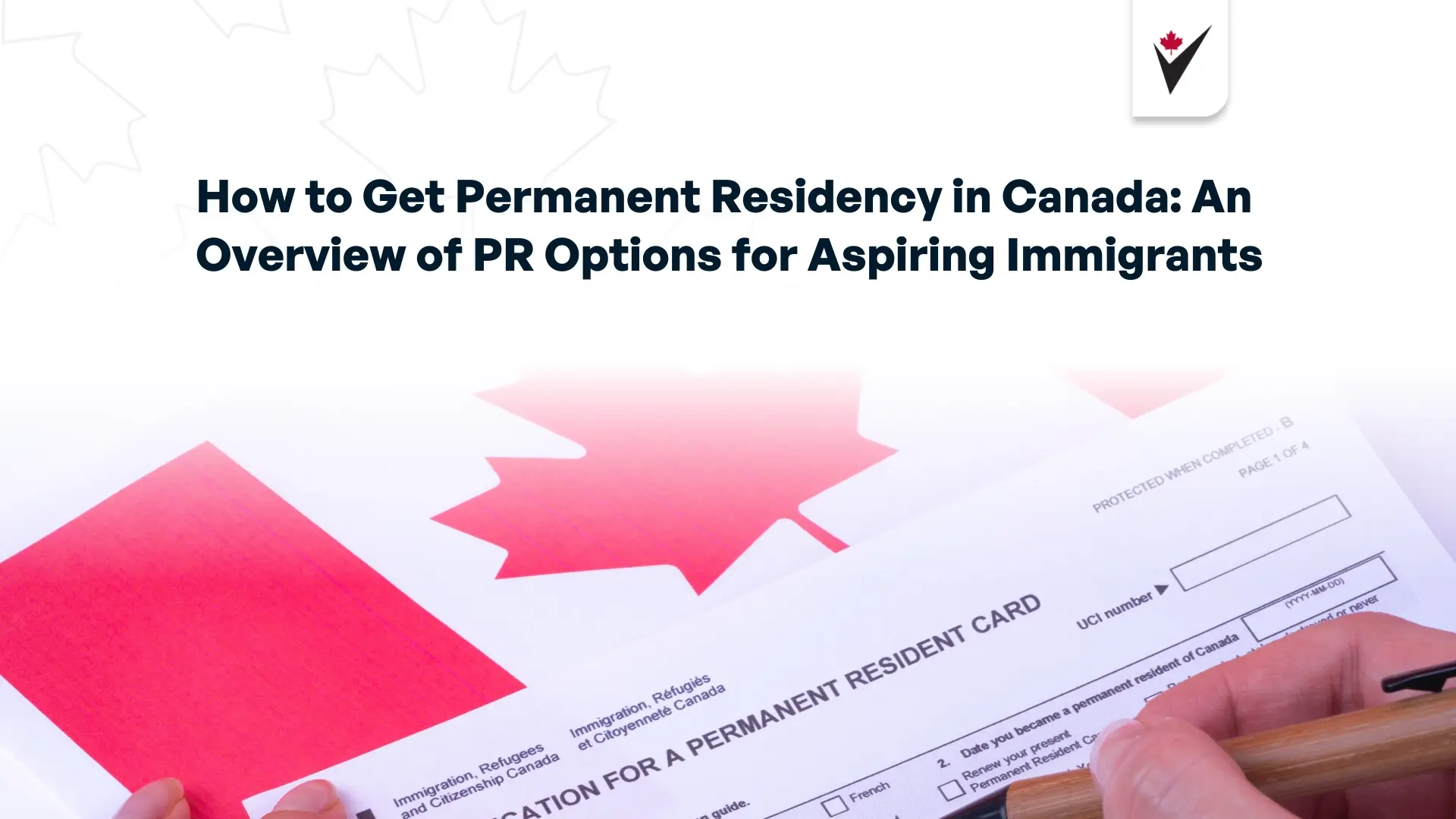- Immigrate
- Programs
- Express Entry
- Federal Skilled Trades Program
Federal Skilled Trades Program
Express Entry to Canada for Skilled Trades Workers
The Federal Skilled Trades Program (FSTP) is an immigration pathway that offers skilled tradespeople the opportunity to fast track their permanent residence (PR) application via Express Entry. It is available for skilled trades workers who have at least 2 years’ experience in eligible industries. Skilled tradespeople who meet the minimum official language, experience, and qualification or job offer requirements may receive PR within 6 months through the FSWP.
Which trades qualify for the Skilled Trades Express Entry to Canada?
There are more than 300 skilled trades for which an applicant may be eligible for a skilled trades program in Canada. Broadly, the skilled trades fall under the following categories and/or industries:
- NOC Group 72: Electrical, industrial, and construction trades.
- NOC Group 73: Maintenance and equipment operation trades.
- NOC Group 82: Natural resources, agriculture, and production trades.
- NOC Group 92: Processing, manufacturing, and utilities trades.
- NOC Group 632: Chefs and cooks.
- NOC Group 633: Butchers and bakers.
Come to Canada as a Skilled Trades Worker
There are five main steps in the application process for the Federal Skilled Trades Program (FSTP) express entry program:
Step 1: Work out if the applicant is eligible.
Step 2: Get the documents ready.
Step 3: Submit the applicant’s profile to the pool of candidates.
Step 4: Receive an invitation.
Step 5: Apply for permanent residence as a skilled trades worker.
Step 1: Eligibility for the Federal Skilled Trades Program
To come to Canada as part of the skilled trades express entry program, the applicant must (at a minimum):
- Demonstrate proficiency in an official language – English or French.
- Have at least 2 years full-time work experience in a skilled trade in the 5 years before the application is submitted.
- Demonstrate experience in the job role requirements outlined in the National Occupational Classification (NOC).
- Have an eligible valid full-time job offer or certificate of qualification in that skilled trade.
Here’s how the applicant can meet those requirements:
Official Language Testing for Skilled Trades Express Entry
The applicant must take an official language test and receive a minimum score of Canadian Language Benchmark 5 for speaking and listening and CLB 4 for reading and writing.
Work Experience in a Skilled Trade
The applicant will need to provide documentation that shows proof of 2 years’ work experience. They will also need to demonstrate experience in all aspects of the job description outlined in the NOC, failure to do so will result in the application being rejected.
Qualifying Full-Time Job Offer Requirements for Skilled Tradespeople
The applicant must be offered continuous, full-time employment from up to 2 Canadian employers for at least 30 hours per week. The job offer must be for a period of at least one year.
If the applicant does not receive a certification of qualification from the Canadian province or territory they wish to live and work in, they must receive a valid job offer to be eligible for express entry. This will typically require the employer to prepare a Labour Market Impact Assessment (LMIA).
The LMIA is required to show that there is a shortage of this type of worker in the Canadian labour force. The employer will need to try to find a Canadian or permanent resident first as part of the LMIA application process.
Certificates of Qualification for Skilled Trades
The process for getting assessed for a certificate of qualification for a skilled trade varies from province to province. But there is one important thing to note: these certifications cannot be issued to people who are outside Canada.
The applicant should work out where they want to live before applying for a certificate of qualification, since the certificates are not transferable. This also means that the applicant may not be able to move from one province to another for work.
Some trades are regulated federally, while others are regulated at the provincial level.
For applicants looking to move to British Columbia, the process is as follows:
Step 1: Review the requirements for the applicant’s trade.
Step 2: Complete the form.
Step 3: Apply and pay a fee.
Step 4: Application verification. (This may take upwards of 6 weeks for international applicants).
Step 5: Application approval.
Step 6: Schedule and write certification exams.
Step 7: Receive certification of qualification.
It is important to note that if the applicant has a certification of qualification but does not have a qualifying job offer or current work status in Canada, the applicant will need to demonstrate proof of sufficient funds to support themselves. From July 15, 2021, this is the amount of money required:
| Number of family members | Funds required (in Canadian dollars) |
|---|---|
| 1 | $13,213 |
| 2 | $16,449 |
| 3 | $20,222 |
| 4 | $24,553 |
| 5 | $27,847 |
| 6 | $31,407 |
| 7 | $34,967 |
| For each additional family member | $3,560 |
Step 2: Documents Required for the Federal Skilled Trades Program Application
Since applicants only have 60 days to submit the application once they’re invited, the documents should be in order before the applicant submits their profile to the IRCC pool. The documents required will vary, but applicants will likely need to provide some or all of the following documents:
- Passport.
- Language test results.
- Educational credential assessment report or proof of education in Canada (if any).
- Provincial nomination (if the applicant has one).
- Written job offer from a Canadian employer (if any).
- Proof of work experience.
- Certification of qualification.
- Proof of funds.
- Police certificates.
- Medical exam.
- Birth certificate (if the applicant is declaring dependent children).
- Proof of relationship (if any).
- Recent digital photos.
- Proof of name change (if any).
- Use of representative form.
Step 3: Apply for Express Entry Under the Skilled Trades Program
To apply for express entry under the skilled trades program, an applicant must create and complete an Express Entry profile. Applicants should have the documents outlined above in advance of submitting the profile to the IRCC. Once the profile is submitted, applicants will receive a CRS score that is used to rank them against other eligible candidates. The higher the score, the more likely it is that the applicant will be invited to apply for permanent residence in Canada as a skilled trades worker.
The CRS score is calculated by adding the applicant’s core points and their additional points.
- Core points: Up to 600 points
An applicant’s core points are based on their education, work experience, age, and language proficiency. Their partner’s factors, including the partner’s language skills and education, are also considered here.
- Additional points: Up to 600 points
An applicant may receive additional points if they have a valid job offer, a provincial nomination, a brother or sister living in Canada who is a citizen or permanent resident, strong French skills, and/or a Canadian degree, diploma or certificate.
Step 4: Wait in the Express Entry Pool to Receive an Invitation to Apply.
During this time, applicants should work on improving their score, by receiving a valid job offer, improving their education or language score, or gaining further work experience.
The applicant should ensure their details remain up to date on their account profile, too.
Step 5: Submit the Application for Permanent Residence.
If the applicant receives an invitation to apply, they will have 60 days to submit an application for permanent residence.
If the applicant hasn’t already sought guidance from a registered immigration consultant, they should reach out as early as possible after receiving the invitation to apply.
Regulated Canadian Immigration Consultants (RCIC-IRB)
Proudly regulated by and in good standing with the College of Immigration and Citizenship Consultants (CICC). Jamie Dowla, registration #: R507233.

Our Canadian Immigration Success Stories
Learn About All of the Great Things
Canada Has to Offer!
Canadian Immigration News, Tips, and Resources

How to Get Permanent Residency in Canada: An Overview of PR Options for Aspiring Immigrants
For many aspiring immigrants, the dream of building a new life in Canada begins with securing permanent residency. Canada offers a welcoming environment, a high quality of life, and a wealth of
read more
How Long Does it Take to Get Canada Permanent Residency: 5 Factors That Can Affect Your Processing Time
If you’re seeking permanent residency in Canada, one of the most pressing questions you may have is: how long does it take to get Canada permanent residency? The waiting period can be a significant
read more
Top-Ranked Canadian Universities for International Students
Every year, Canada welcomes hundreds of thousands of international students. When you study in Canada, you invest in your future. In this article, we’ll explain why Canada is an ideal destination for
read moreFind Your Licensed Immigration Consultant
Wherever You Are Located
We assist clients across Canada and internationally. See the countries below to find your regulated Canadian immigration consultant.

